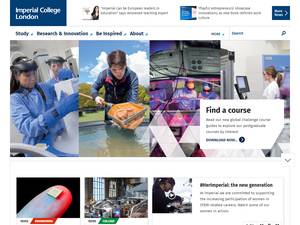Swansea University is a UK top 30 institution for research excellence (Research Excellence Framework 2014), and has been named Welsh University of the Year 2017 by The Times and Sunday Times Good University Guide.
Funding provider: Welsh Government and European Regional Development Fund
Subject areas: Materials Science, Physics, Chemistry, Nanotechnology , Chemical Engineering, Electrochemistry, Materials Chemistry
Start date: 8 January 2018
Description:
Energy sustainability is an emerging issue to date due to huge consumption of fossil-fuel sources (coal, natural gas, liquid fuel) in domestic and industrial sectors. The artificial photosynthesis process is a promising route to convert the solar energy into fuel and electricity. In this line, developing earth abundance, less expensive semiconductor materials perceive great attention owing to their potentiality in photoabsorbance, and catalytic activity towards transforming solar energy in to fuel generation using water and pollutant. For example, titanium dioxide (TiO2) is a well-known photocatalyst/photoelectrocatalyst to oxidise the water into oxygen gas under light irradiation. However, its wide band gap energy nature (~3.2 eV) restrict the visible light photon harvesting from solar spectrum. This project aims to maximise the solar light harvesting to the photoelectrocatalysis reaction through introducing nanostructured visible light semiconductors (modified TiO2, WO3, BiVO4, CdS, CuO, NiO, etc – powder and film form). In first phase, these materials will be prepared through integrated physio-chemical approach (spray coating, screen printing, and hydrothermal technique). In second phase, wide-range of co-catalyst materials will be deposited onto these visible light semiconductors. The resultant nanostructured hybrid semiconductor electrodes were to be tested in photoelectrochemical (PEC) water splitting process and quantifying the fuel output (oxygen and hydrogen). In final stage, the prototype electrodes will be tested in pilot scale flow-type PEC cells. In this stage, different types of water pollutant will be tested in the PEC cells. The major challenges of a) understanding the photocharge carrier transfer mechanism at electrode/pollutant interfaces and b) origin of photocorrosion in the electrode will be exclusively examined in this project. These findings would be significant to researchers interested in identifying alternative routes in designing the champion, low-cost photocatalyst/photoelectrocatalyst towards solving the future energy crises.
Aims:
Developing nanoscale semiconductor thin films or electrodes and demonstrate their photoelectrocatalytic properties in solar fuel (hydrogen and oxygen) generation and water pollutant treatment.
Supervisor: Dr. Sudhagar Pitchaimuthu
Facilities:
The College of Engineering at Swansea University is based at the recently opened £450M Bay Campus and has world class research, links with industry and outstanding facilities. It has a record of £120M of research funding since 2008. This research project will be embedded within Materials Engineering which is ranked 5th in the UK (The Times Good University Guide 2017) and in the top 200 departments in the world (Shanghai Global Rankings). Part of the material analysis will be carried out at Prof. James Durrant research group at Imperial College London.


 Established in 1907, Imperial College London is a non-profit public higher education institution located in the urban setting of the metropolis of London (population range of over 5,000,000 inhabitants). Officially accredited and/or recognized by the Privy Council, Imperial College London is a large (uniRank enrollment range: 15,000-19,999 students) coeducational higher education institution. Imperial College London offers courses and programs leading to officially recognized higher education degrees such as bachelor degrees in several areas of study. See the uniRank degree levels and areas of study matrix below for further details. International applicants are eligible to apply for enrollment.
Established in 1907, Imperial College London is a non-profit public higher education institution located in the urban setting of the metropolis of London (population range of over 5,000,000 inhabitants). Officially accredited and/or recognized by the Privy Council, Imperial College London is a large (uniRank enrollment range: 15,000-19,999 students) coeducational higher education institution. Imperial College London offers courses and programs leading to officially recognized higher education degrees such as bachelor degrees in several areas of study. See the uniRank degree levels and areas of study matrix below for further details. International applicants are eligible to apply for enrollment.